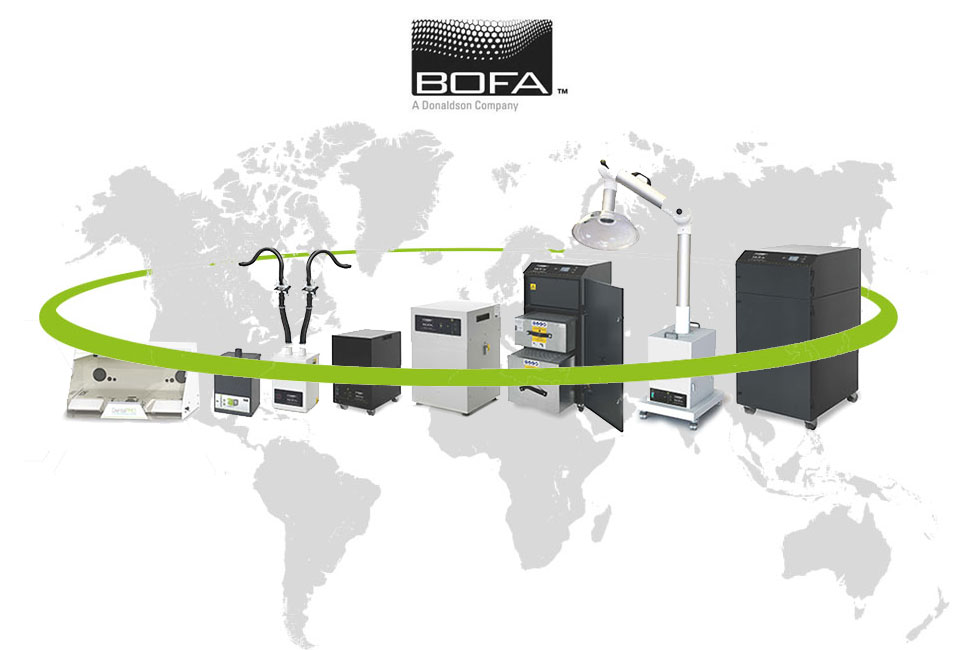Fume and dust extraction systems play an important role in supporting the environmental, social and governance (ESG) strategies increasingly being adopted in the corporate world.

Businesses see these three pillars as fundamental not just to being a good corporate citizen but also to the values that enhance their brand in the eyes of customers and stakeholders. In short, being a responsible employer with strong ethical and sustainability credentials isn’t just good for people and the planet, it’s also good for business.
So how can BOFA technology be a contributor to ESG performance?
From an environmental perspective, BOFA has strong credentials in filtering and capturing potentially harmful airborne contaminants that might otherwise be exhausted externally via a vent-to-air system. BOFA’s technology not only helps to contain these emissions, it makes the responsible disposal of carbon filter media saturated with chemicals simpler, in line with prevailing regulations.
It’s also worth noting that BOFA pre-filters can be dismantled and recycled. Disposal of filters should be done so in accordance with local waste disposal guidelines. The activated carbon used in BOFA filters are made from coconuts, which provide a truly sustainable and carbon neutral activated carbon. Furthermore, this is a renewable resource and one that exhibits lower global warming potential than other carbons. In addition, since coconut trees are not felled, they continue to absorb carbon throughout their lifecycle.
Another significant advantage of portable extraction is that it will almost certainly possess a lower carbon footprint than a vent-to-air system. In part, this results from the operating efficiency of BOFA design features, for example through innovations in airflow that help optimise system performance and filter life, but there is a more fundamental advantage over a vent-to-air system – energy consumption.
While vent-to-air can be effective in removing fume and dust, the exhaust process may emit both the process particulate and air that has been heated for employee comfort. This heat will need to be continuously replaced, which not only adds cost to any process, but may also impact negatively on the plant’s environmental performance.
Of course, the primary function of extraction is to help keep work environments clean and production equipment free from the debris that would otherwise contaminate expensive equipment, such as laser lenses or additive manufacturing components.
This commitment to safety clearly chimes with social responsibility and is gaining traction around the world, particularly as major manufacturing corporations set up global supply chains and production facilities. BOFA’s portable extraction systems not only help provide the flexibility to adopt agile manufacturing processes, they also remove and capture 99.997% of particulate through multi-stage filtration.
This level of extraction performance is fundamental to safety and supports a core value vital to corporate reputation. It is also a reflection on how organisations are managed and, as we know, consumers are increasingly brand aware and can quickly expose failings across social media when companies fall short.
Taken together, the environmental and social responsibility benefits of BOFA technology can make positive contributions to business governance. These are factors that are becoming increasingly influential as indicators of corporate culture and are another reason why demand for BOFA technology continues to grow around the world.

